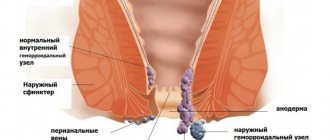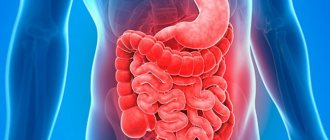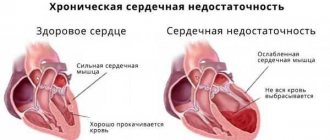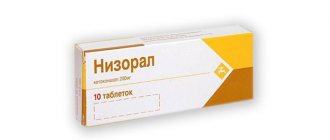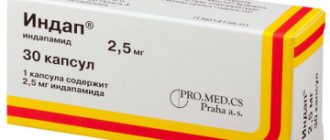Calcium is a microelement that ensures the normal functioning of all systems of the human body, so its lack can cause serious malfunctions in the functioning of bone tissue and all internal organs. A healthy person with proper nutrition should not experience calcium deficiency.
But sometimes circumstances and situations arise when the deficiency of this mineral has to be compensated with the help of special supplements and vitamin complexes. One of these is Kalcemin Advance.
What does Calcemin Advance help with?
The drug is effective in the treatment and prevention of diseases affecting the skeletal bones and their joints.
It is recommended to take it in the following cases:
- With osteoporosis, which affects the skeletal frame of our body and disrupts the integrity of the bones;
- For osteoarthritis affecting the spine, hips, joint structure;
- In case of age-related menopause, which occurs naturally or after surgical operations;
- With prolonged use of antidepressants and diuretics;
- During periods of intense training in the gym or other physical activity;
- If there is a lack of minerals and vitamins in the body, especially during adolescence;
- For fractures, so that the bones heal faster;
- During the period of therapy that is associated with bone damage.
Composition and release form
The tablets have an oval shape, a dividing notch on one side and a pale pink shell. They are packaged in bottles of 30, 60 or 120 pieces.
One tablet includes:
| Active components | Weight, mg | Auxiliary components | Weight, mg | Shell | Weight, mg |
| Calcium carbonate | 500 | Microcrystalline cellulose | 49 | Hypromellose | 26 |
| Vitamin D | 200 IU | Croscarmellose sodium | 38 | Titanium dioxide | 13 |
| Magnesium oxide | 40 | maltodextrin | 25 | Magnesium silicate | 5 |
| Zinc oxide | 8 | stearic acid | 16 | Triacetin | 6 |
| Manganese sulfate | 2 | soybean polysaccharide | 15 | Mineral oil | 3 |
| Copper oxide | 1 | sodium lauryl sulfate | 5 | Dye | 0,4 |
| Sodium borate | 0,25 |
Operating principle
When an insufficient amount of calcium enters the human body with food, the drug helps replenish it.
- Calcium citrate slows down bone destruction and reduces the risk of iron deficiency.
- Vitamin D improves the absorption of calcium in the intestines, preserves the structure of bone tissue, and promotes the proper formation of the skeleton.
- Magnesium and zinc contribute to the formation of bones and muscles, protein synthesis, and sex hormones. They have a positive effect on bone density.
- Manganese takes part in the formation of proteoglycans.
- Copper helps synthesize elastin and collagen.
- Boron has an active effect on parathyroid hormone, prevents the occurrence of osteoporosis and improves calcium absorption.
Benefits of calcium
Calcium is very important for women's health, and especially with the onset of menopause. Hormonal imbalance, which develops due to withering of the ovaries, leads to metabolic disorders, so Ca that enters the body with food is poorly absorbed. This leads to damage not only to the bone tissue of the female body, because Ca is needed for many processes:
- formation of bone structure;
- regulation of acid-base balance;
- blood clotting;
- metabolism;
- water, salt, carbohydrate balance;
- muscle contractions, including heart muscle;
- the production of certain hormones;
- work of the central nervous system;
- active work of gastrointestinal enzymes;
- strength of blood vessels;
- health of hair, teeth, nails.
The decrease in Ca concentration is also affected by its indigestibility. For this, the body needs a supply of vitamin D, microelements boron, manganese, zinc, magnesium, copper.
The purpose of microelements for human health is as follows:
- Vitamin D is needed for regeneration and strengthening of bones, for the absorption of Ca.
- The role of Mg is to strengthen the bone structure, reproduce proteins, blood, help the heart function normally, and calm the nerves.
- Mn has a role in the regeneration of bones and cartilage, and the absorption of Ca.
- Copper is needed to strengthen connective tissues.
- Zinc has a function of participating in tissue regeneration and the work of enzymes.
- Boron is needed to stabilize metabolism.
Instructions for use of the drug
Calcemin Advance should be taken strictly following the instructions and recommendations of the attending physician. He must individually select the duration of treatment for each patient.
It is prohibited to exceed the specified dosage. The drug must be taken during meals. It is not recommended to chew the tablet; it should be swallowed and washed down with plenty of water.
Depending on the patient’s condition and diagnosis, the following dosages of the drug and duration of treatment are prescribed:
- Prevention of osteoporosis – 1 tablet per day for about 2 months;
- Treatment of osteoporosis with complex therapy – 1 tablet twice a day for 3 months;
- Improve and accelerate bone healing during fractures - 1 tablet per day for 1-2 months, depending on the severity;
- Replenishing the lack of minerals for adolescents from twelve years old - 1 tablet per day for about 1 month.
Let's celebrate! During pregnancy and lactation, the medication should be prescribed with increased caution. During pregnancy, you should not take more than three tablets per day. Women during breastfeeding need to take into account the fact that the components of the vitamin preparation are excreted in milk.
Side effects and overdose
Side effects are rarely diagnosed and appear as:
- Allergic reactions - rashes, itching and redness;
- Flatulence, nausea and vomiting;
- Development of hypercalciuria and hypercalcemia.
Signs of an overdose include thirst, constipation, fainting, pain in the bones and abdomen, and mental disorders. In advanced cases, it can lead to irreversible consequences - kidney damage, disruption of the heart, deposition of calcium salts in organs and soft tissues.
At the first signs listed above, you should immediately stop taking the medicine. If an overdose occurs accidentally, rinse the stomach.
Overdose during pregnancy - against the background of hypercalcemia in the mother, the child may experience defects in physical and mental development.
Contraindications
Firstly, “Kalcemin” is one of those medications that should never be taken without a doctor’s prescription. Unauthorized self-prescription of this drug can contribute to an excess of calcium in the body, which, like a deficiency of this element, does not have a positive effect on health. Too much calcium leads to the appearance of kidney stones, disruption of the metabolic process, and in pregnant women this can have a very negative impact on the unborn baby.
Specific contraindications for taking Calcemin include: increased amount of calcium in the blood and/or urine; intolerance to the components of the drug; urolithiasis disease; renal failure; active tuberculosis; gestation period up to twenty weeks.
Drug interactions
It is not advisable to take Calcemin Advance with certain medications at the same time. Between doses you need to maintain an interval of at least 2-3 hours.
They are:
- Laxatives that slow down the absorption of vitamin D3;
- Tetracycline drugs, as their effectiveness decreases.
- Levothyraxine, contraceptives that impair calcium absorption;
- Thiazide diuretics, which have a beneficial effect on the development of hypercalcemia;
- Loop diuretics, which promote the excretion of calcium in the urine;
- Calcium channel blockers, antacids;
- Barbiturates and fetoins.
Analogues and their cost
In case of intolerance to one of the components of the drug, the doctor may replace it with another vitamin complex of similar effects.
Below are approximate prices in pharmacies:
- Vitrum calcium + vitamin D3 – a complex intended for calcium deficiency and for the prevention of osteoporosis. The average cost is 628 rubles.
- Calcemin - strengthens bones and their joints, replenishes the lack of microelements and vitamin D. Allowed for children from five years old. The price varies depending on the number of tablets in the package - 322 rubles (for 30 pieces) - 718 rubles (for 120 pieces).
- Calcium-D3 nycomed – replenishes the lack of calcium and vitamin D3 in the body. The average price is from 222 rubles (for 30 pcs.) to 513 rubles (for 100 pcs.).
- Complivit calcium D3 – Increases bone density, replenishes deficiencies and improves calcium absorption. Cost 153 rubles (for 30 pcs.), 350 rubles for (100 pcs.).
- Complivit calcium D3 for the little ones is available in the form of a suspension and can be purchased from 222 rubles.
- Tetravit Pregna - a complex intended for pregnant women, helps cope with toxicosis, reduces the likelihood of miscarriage.
- Calcinova for children – replenishes the body’s need for microelements in case of allergies to dairy products and milk. Price - from 150 to 170 rubles.
Calcemin during pregnancy: what is it prescribed for?
For the birth of a new life and its development, the expectant mother needs “building material” - calcium - in greater quantities than ever before. It builds and strengthens the baby’s bones and cartilage, and at the same time is responsible for the condition of the mother’s teeth and nails, for example. Therefore, its deficiency can negatively affect both the condition of the mother and the condition of the unborn baby. Calcium in sufficient quantities in a pregnant woman reliably protects the unborn child from rickets, and she herself from stress and allergies.
A sufficient amount of calcium in the mother’s body minimizes the risk of miscarriage, premature birth, and reduces the amount of blood loss during labor. Among other things, calcium contributes to normal digestion and kidney function in the expectant mother.
A woman may well suspect calcium deficiency herself, because it is accompanied by quite clear external signs. Leg cramps, deterioration of teeth, brittle or peeling nails, dry skin indicate an acute lack of calcium in the pregnant body.
The absorption of calcium can be interfered with by bad habits - smoking or alcoholic drinks, which should have been abandoned before planning pregnancy. Unbalanced food, the presence of obviously harmful foods in the diet, and a sedentary lifestyle also prevent the flow of calcium into the body of the expectant mother, and this is just one of the negative consequences of such a lifestyle.
At the same time, every expectant mother should know that her daily requirement for calcium is 1500 mg, while the fetus receives about 3 mg of the element per day in the first trimester, and up to 300 mg in the third.
Thanks to calcium, the baby’s skeleton, teeth, nails and even all the tissues of the small growing organism are formed.
Obviously, only a qualified doctor can identify calcium deficiency, and changing your lifestyle and drinking special vitamin complexes can and should be done only after an appropriate conclusion and prescription. The fact is that if you thoughtlessly enrich your diet with foods high in calcium, or drink special medications, when in fact the amount of the element is normal, there is a risk of its excess. And this is also fraught with disappointing consequences.
One of these may be the formation of stones in the kidneys, urinary and gall bladders. The fact is that calcium affects the urinary system, and its excess can provoke excessive stress with a logical result.
A calcium surplus can negatively affect the absorption of magnesium, which, in turn, has a beneficial effect on the functioning of the cardiovascular, muscular and nervous systems.
So every expectant mother should draw the following conclusion for herself: she should think about medications containing calcium only after a doctor’s prescription; self-medication will not lead to any good!
So, the diagnosis was made, the woman was prescribed to drink Calcemin during pregnancy. Is it necessary to immediately resort to medication or can you try to compensate for the calcium deficiency on your own?
User reviews
It all started when I became a vegetarian more than five years ago. After this, pain in the joints and crunching in the bones appeared, I was very scared and went to the hospital. My doctor prescribed me this vitamin complex and told me to take it for three months. The pain in the joints became less pronounced, and the crunching sensation ceased to be felt. And recently, my manicurist noticed that my nail plates became stronger and stopped peeling. This vitamin complex turned out to be a lifesaver for me.
Grade:
Anna, 34 years old.
When I started having problems with my teeth, I realized that my body did not have enough calcium. Tartar and plaque began to form and, as a result, gum inflammation and a loose tooth. The pharmacy recommended a strong and fast-acting remedy, Calcemin Advance. In two months he saved me from periodontal disease. But out of fear of a recurrence of the disease, I continued to drink it and made one mistake. I had another tooth come out on top of the main one. The dentist explained this by saying that there is excess calcium in the body. Therefore, I advise you not to get carried away with the complex and strictly adhere to the instructions. Otherwise he is wonderful!
Grade:
Veronica, 22 years old.
After the birth of the child and during lactation, my hair began to fall out in clumps, my teeth began to crumble and my nails broke. In a panic, I ran to my doctor, who prescribed me to take this drug for a month. I was confused by the price, but there was nothing to do. The tablets taste like chalk. I noticed the effect after three weeks, my hair stopped falling out, the condition of my nails and teeth improved. But constipation appeared. In general, the drug is worthy of attention.
Grade:
Maria, 26 years old.
The vitamin and mineral complex Kalcemin Advance is an excellent remedy for those who care about their health.
To decide whether to take this medication, consider the following:
- The person’s age and condition;
- Contraindications and possible side effects;
- Dosage and duration of use, do not take more than the recommended period;
The medication is available from pharmacies without a doctor's prescription, but consultation with a specialist is advisable.

